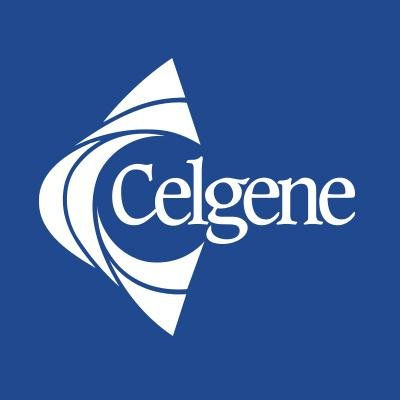预约演示
更新于:2026-02-07
CC-96191
更新于:2026-02-07
概要
基本信息
非在研机构- |
权益机构- |
最高研发阶段临床1期 |
首次获批日期- |
最高研发阶段(中国)- |
特殊审评- |
登录后查看时间轴
关联
1
项与 CC-96191 相关的临床试验NCT04789655
A Phase 1, Multi-center, Open-label, Dose Finding Study of CC-96191 in Subjects With Relapsed or Refractory Acute Myeloid Leukemia
This Phase 1, clinical study of CC-96191 will explore the safety, tolerability and preliminary biological and clinical activity of CC-96191 as a single-agent in the setting of Relapsed or refractory acute myeloid leukemia (R/R AML).
The dose escalation (Part A) of the study will explore escalating intravenous doses of CC-96191 to estimate the MTD and/or RP2D of CC-96191 as monotherapy.
The expansion (Part B), will further evaluate the safety and efficacy of CC-96191 administered at or below the MTD in one or more expansion cohorts in order to determine the RP2D.
The dose escalation (Part A) of the study will explore escalating intravenous doses of CC-96191 to estimate the MTD and/or RP2D of CC-96191 as monotherapy.
The expansion (Part B), will further evaluate the safety and efficacy of CC-96191 administered at or below the MTD in one or more expansion cohorts in order to determine the RP2D.
开始日期2021-06-16 |
申办/合作机构 |
100 项与 CC-96191 相关的临床结果
登录后查看更多信息
100 项与 CC-96191 相关的转化医学
登录后查看更多信息
100 项与 CC-96191 相关的专利(医药)
登录后查看更多信息
3
项与 CC-96191 相关的新闻(医药)2026-01-06
·浆军赶路
大家好,我是赶路的行者。
双特异性T细胞重定向疗法在血液系统恶性肿瘤中的成功应用,推动了可同时靶向3种分子的三特异性抗体的研发。三特异性抗体解决了双特异性抗体的关键局限性,包括抗原逃逸、T细胞激活不足以及脱靶毒性。三特异性抗体的构建主要采用两种策略:一是双重肿瘤抗原靶向联合CD3激活,以预防抗原逃逸;二是整合共刺激信号(CD28、4-1BB),以增强T细胞功能。三特异性T细胞重定向疗法代表了血液系统恶性肿瘤精准免疫治疗的重大进步,正在进行的临床试验将明确其在不断发展的治疗格局中的定位。引言血液系统恶性肿瘤的免疫治疗
过去几十年,血液系统恶性肿瘤的治疗模式发生了显著变革,从传统的细胞毒性化疗逐步演变为利用患者自身免疫系统靶向杀伤癌细胞的精准免疫治疗方法。这一演变是现代肿瘤学最重大的进展之一,从根本上改变了以往无法治愈的血液系统肿瘤患者的预后。
现代血液系统肿瘤免疫治疗的基础源于20世纪70年代单克隆抗体的研发及其后续的临床应用。1997年,首个获美国食品药品监督管理局(FDA)批准用于癌症治疗的单克隆抗体——利妥昔单抗(Rituximab),被批准用于治疗B细胞非霍奇金淋巴瘤,这一里程碑事件证实,选择性靶向肿瘤相关抗原能够实现具有临床意义的治疗应答,且毒性可控,为血液系统肿瘤的抗体类免疫治疗奠定了概念验证基础。
利妥昔单抗的成功促使众多针对不同血液系统恶性肿瘤抗原的单克隆抗体相继问世,包括阿仑单抗(CD52靶点)、奥法木单抗(CD20靶点)、达雷妥尤单抗(CD38靶点)和埃罗妥珠单抗(SLAMF7靶点)。这些药物均验证了特定靶点抗原的有效性,并证实抗体介导的作用机制(包括补体依赖的细胞毒性、抗体依赖的细胞毒性及直接诱导凋亡)在临床场景中可有效清除恶性细胞。
下一个重大突破性进展是嵌合抗原受体(CAR)T细胞疗法的出现,它实现了从被动免疫治疗到主动免疫治疗的范式转变。CAR-T细胞通过基因工程改造表达靶向肿瘤抗原的合成受体,在复发/难治性B细胞恶性肿瘤中展现出前所未有的缓解率。Tisagenlecleucel和Axicabtagene ciloleucel分别获批用于治疗急性淋巴细胞白血病和大B细胞淋巴瘤,确立了细胞免疫治疗作为以往无法治愈疾病的根治性治疗手段的地位。
然而,自体CAR-T细胞疗法存在的复杂性、高成本及制备挑战,凸显了对“现成可用”(off-the-shelf)免疫治疗方法的需求——这类方法需具备相似疗效、更高可及性且降低后勤负担。这一临床需求推动了双特异性T细胞重定向疗法(BiTEs)的研发,该类药物通过巧妙设计,无需体外细胞操作即可重定向内源性T细胞对抗肿瘤细胞。双特异性T细胞重定向疗法:基础与局限性
双特异性T细胞重定向疗法是一类革命性的免疫治疗药物,通过同时结合肿瘤相关抗原和T细胞上的CD3复合物,搭建肿瘤细胞与效应T细胞之间的桥梁。这些工程化抗体可形成人工免疫突触,以不依赖主要组织相容性复合体(MHC)的方式激活细胞毒性T淋巴细胞,从而绕过血液系统恶性肿瘤常用的多种免疫逃逸机制。
Blinatumomab(CD19×CD3双特异性抗体)的临床应用验证了这一策略的有效性,该药物在复发/难治性急性淋巴细胞白血病中展现出显著疗效。TOWER试验显示,与标准化疗相比,blinatumomab显著改善患者总生存期,确立了其作为改变临床实践的治疗药物地位,并验证了双特异性T细胞重定向疗法平台的可行性。此后,针对多种血液系统恶性肿瘤抗原(包括BCMA、GPRC5D、FcRH5和CD20)的双特异性抗体相继研发。
双特异性T细胞重定向疗法的作用机制涉及多个连续步骤,最终实现肿瘤细胞清除:首先,肿瘤抗原结合域识别并结合恶性细胞表面表达的靶抗原;同时,CD3结合域与邻近T细胞受体复合物的CD3亚基结合。这种双重结合形成稳定的免疫突触,使T细胞与肿瘤细胞紧密靠近,并通过CD3信号触发T细胞激活。免疫突触形成后,激活的T细胞快速增殖并分化为细胞毒性效应细胞,释放含有穿孔素和颗粒酶的细胞毒性颗粒——穿孔素在肿瘤细胞膜上形成孔道,颗粒酶进入细胞诱导凋亡。此外,激活的T细胞分泌γ干扰素、肿瘤坏死因子α和白细胞介素等促炎细胞因子,可增强抗肿瘤免疫应答并招募更多效应细胞。
尽管双特异性T细胞重定向疗法在临床上取得了成功,但仍存在若干限制其治疗潜力的关键局限性:
抗原逃逸:这是最主要的挑战,尤其在B细胞恶性肿瘤中,约10%-20%的患者接受blinatumomab治疗后会出现CD19阴性复发。这种现象源于单一抗原靶向产生的选择压力,导致肿瘤细胞克隆通过基因突变、表观遗传沉默和可变剪接等多种机制丢失或下调靶抗原表达,进而增殖存活。
T细胞耗竭与功能障碍:在经过多线治疗、免疫系统受损的患者中尤为突出。血液系统恶性肿瘤的免疫抑制性肿瘤微环境(以抑制性细胞因子水平升高、检查点受体上调和代谢限制为特征)会限制重定向T细胞的激活、增殖和效应功能。此外,双特异性抗体仅依赖CD3介导的激活,缺乏T细胞最佳功能所需的共刺激信号,进一步加剧了这一问题。
细胞因子释放综合征(CRS)和免疫效应细胞相关神经毒性综合征(ICANS):这两种剂量限制性毒性会缩小双特异性T细胞重定向疗法的治疗窗口[22]。其成因是双特异性抗体诱导T细胞快速大量激活,导致大量细胞因子释放,引发危及生命的全身性炎症和神经系统并发症。尽管目前管理策略已显著优化,但这些毒性仍是限制给药剂量并需要密切监测患者的重要问题。三特异性与双特异性T细胞重定向疗法的对比
三特异性与双特异性T细胞重定向疗法的对比显示出若干关键差异,这些差异可能影响其临床应用价值。从作用机制来看,当前的三特异性抗体结构更复杂,能有效解决双特异性抗体的特定局限性,具备更精准的肿瘤靶向性和额外功能(包括双重抗原靶向、检查点调控和整合T细胞激活信号)。然而,这种复杂性也带来了设计、制备和临床开发方面的新挑战。靶抗原策略
双特异性T细胞重定向疗法采用二元相互作用模式,同时结合单一肿瘤相关抗原和T细胞上的CD3,以重定向其细胞毒性。这种单一肿瘤靶向策略虽经临床验证,但在治疗持久性方面存在固有缺陷——依赖单一抗原识别使这类抗体易受抗原下调或丢失导致的免疫逃逸影响,这是多种血液系统恶性肿瘤中已明确的耐药机制。
三特异性T细胞重定向疗法通过整合双重肿瘤抗原识别与CD3激活,从根本上改变了这一模式。这种三价结合策略将激活逻辑从简单的二元相互作用转变为更复杂的条件激活系统:只有同时结合两种不同的肿瘤抗原,才能实现T细胞的完全激活。这一机制提高了激活阈值,降低了单一抗原丢失导致的免疫逃逸概率。这种优化的抗原识别机制标志着抗体工程的重大进步,克服了双特异性抗体在临床应用中持久性和疗效有限的核心挑战。
在三特异性T细胞重定向疗法中整合抗PD-L1抗体与另一种肿瘤靶向抗体,可使抗PD-L1部分发挥双重功能:既靶向过表达PD-L1的癌细胞,又同时抑制免疫抑制性检查点信号。目前多个三特异性候选药物处于临床前研发阶段,其抗癌疗效优于相应的双特异性抗体。T细胞激活特征
双特异性抗体仅提供信号1(通过CD3识别抗原),缺乏共刺激信号,需依赖内源性共刺激实现T细胞最佳激活。这一局限性在T细胞耗竭的多线治疗患者中可能尤为突出。三特异性抗体可整合共刺激结构域(CD28、4-1BB、OX40),提供信号2(共刺激信号),有望增强T细胞激活、增殖和持久性。这种双信号策略解决了双特异性抗体在免疫功能受损患者中的功能局限性,即使在内源性共刺激通路受损的复杂临床场景中,仍可能恢复T细胞功能并维持治疗效果。耐药机制
双特异性抗体面临明确的耐药机制(包括抗原逃逸和T细胞耗竭),而三特异性抗体通过双重抗原靶向策略,可避免部分逃逸机制导致的耐药。制备复杂性
双特异性抗体虽比传统单克隆抗体复杂,但已建立成熟的制备流程和监管路径;三特异性抗体在蛋白质工程、表达、纯化和表征方面引入了额外复杂性,可能增加制备成本和监管要求。
双特异性抗体的临床开发路径已较为成熟,多个获批药物为监管审批提供了先例;而三特异性抗体的临床验证仍处于早期阶段,多数候选药物处于Ⅰ期或Ⅱ期早期开发阶段。然而,初步数据显示,三特异性抗体的设计可能实现其理论潜力,部分药物的缓解率优于历史双特异性抗体对照。作用机制与结构设计结构设计考量
三特异性抗体采用多样化的结构支架,以容纳3个不同的结合域,同时维持其稳定性、可制备性和生物学功能。最常见的形式包括串联单链可变片段(scFvs)、整合单域抗体(VHH)的模块化蛋白质结构,以及结合不同抗体形式的杂合设计。结合域的空间排列和相对位置对有效免疫突触的形成及后续T细胞激活至关重要。三特异性抗体设计的内在工程挑战需要优化多个参数:结合域的取向和间距(确保同时靶向结合)、相对亲和力(避免竞争性抑制)、连接子设计(维持蛋白质稳定性并减少聚集),以及整体分子大小(平衡组织穿透性和半衰期)。三特异性设计的策略方法双重肿瘤抗原靶向策略
三特异性抗体的双重肿瘤抗原靶向通过精准分子工程实现条件性T细胞激活。该策略利用恶性细胞通常稳定共表达多种肿瘤相关抗原,而正常组织中这些抗原表达水平较低或单独表达的特点:通过设计需在免疫突触内同时结合两种肿瘤抗原的抗体结构,三特异性抗体可增强恶性细胞与健康细胞的鉴别能力。
这一策略的临床验证在B细胞恶性肿瘤中最为深入——CD19×CD20×CD3三特异性平台是典型代表,该平台在双特异性CD19×CD3治疗后出现的CD19阴性变异体中,仍能维持抗肿瘤活性。临床前疗效研究显示,这些抗体对单独表达任一抗原的肿瘤细胞仍保留完全细胞毒性,而仅在两种抗原共表达时才实现最大激活,形成梯度应答特征,优化治疗指数。
双重抗原三特异性抗体的分子设计考量不仅包括抗原选择,还需优化结合域定位、相对亲和力和空间限制(这些因素调控有效免疫突触形成)。共刺激整合策略
共刺激信号整合是另一种三特异性设计策略,旨在增强T细胞激活、增殖和持久性。通过整合CD28或4-1BB等共刺激受体的结合域,这类抗体在单一分子中同时提供信号1(通过CD3识别抗原)和信号2(共刺激),有望克服多线治疗患者的T细胞耗竭[32]。
临床前研究表明,CD3×CD28共刺激三特异性抗体与仅含CD3的双特异性抗体对照相比,可诱导更显著的T细胞扩增、细胞因子产生和抗肿瘤疗效。CD38×CD3×CD28构建体SAR442257是该策略的临床代表,目前正处于多发性骨髓瘤的早期临床试验阶段。三特异性NK细胞重定向疗法平台
三特异性NK细胞重定向疗法(TriNKETs或TriKEs)是一种独特的作用机制平台,其重定向自然杀伤(NK)细胞而非T细胞对抗血液系统恶性肿瘤。这类构建体通常结合肿瘤抗原靶向与NK细胞激活受体(如CD16a或NKG2D),并可能整合IL-15等细胞因子信号,以增强NK细胞功能和持久性。
TriNKET平台在急性髓系白血病(AML)中显示出特殊潜力——由于白血病原始细胞与正常造血细胞共享抗原,T细胞重定向策略的治疗窗口受限,而NK细胞的细胞毒性机制和靶标识别模式与T细胞不同,为解决这一问题提供了可能。靶向CD33×CD16a×NKG2D的CC-96191在临床前模型中展现出强效抗白血病活性,同时对正常造血干细胞无明显损伤。血液系统恶性肿瘤中的临床应用多发性骨髓瘤
多发性骨髓瘤是三特异性T细胞重定向疗法临床应用最成熟的领域,其研发基于BCMA靶向双特异性抗体的既定成功。该疾病中三特异性治疗药物的研发依据包括:骨髓瘤的显著抗原异质性需多靶点策略以减少抗原逃逸;整合共刺激信号域可减轻多线治疗患者的T细胞耗竭;当前骨髓瘤靶向免疫治疗的良好安全性特征为评估新型多特异性构建体提供了适宜的临床环境。
多个双重抗原靶向三特异性抗体已进入临床开发阶段,以BCMA为主要锚定靶点,联合次要骨髓瘤抗原。BCMA×CD38×CD3构建体ISB 2001目前拥有最成熟的临床数据,在早期研究中,剂量≥50μg/kg时总缓解率达90%,且细胞因子释放综合征以低级别为主,提示其耐受性优于部分双特异性抗体。
GPRC5D因在骨髓瘤细胞上高表达、正常组织分布有限且与BCMA表达模式无重叠,成为BCMA双重靶向策略的理想搭档。多个BCMA×GPRC5D×CD3构建体(包括MBS314、SIM0500和JNJ-79635322)正在研发中,首次人体剂量递增研究的初步数据已逐步公布。
共刺激三特异性抗体旨在改善免疫抑制性骨髓瘤微环境中的T细胞功能。CD38×CD3×CD28构建体SAR442257是该类别的领先临床药物,其设计旨在单一分子中同时实现肿瘤靶向和T细胞共刺激。早期临床数据显示,与历史双特异性抗体对照相比,该药物可增强T细胞激活和扩增,但确切疗效对比仍需成熟研究结果验证。急性淋巴细胞白血病
鉴于blinatumomab的明确疗效及CD19阴性复发的公认问题,急性淋巴细胞白血病成为三特异性抗体研发的自然延伸领域。联合CD19与CD20或CD22的双重B细胞抗原靶向策略处于临床前开发阶段,早期研究显示其对 antigen-loss变异体仍保持活性。
儿童ALL人群的三特异性抗体研发面临独特考量,包括不同的毒性特征、原始细胞特性差异,以及需以根治为目标而非姑息治疗。急性髓系白血病
由于白血病原始细胞与正常造血细胞共享抗原,T细胞重定向免疫治疗在AML中面临显著挑战。三特异性NK细胞重定向疗法通过利用NK细胞独特的细胞毒性机制和靶标识别模式,为解决这一问题提供了潜在方案。
CD33×CD16a×NKG2D构建体CC-96191在临床前模型中展现出对AML原始细胞的选择性活性,同时保留正常造血干细胞功能。其他用于三特异性策略的髓系靶点(包括CD123和CLEC12A)正在研究中,常联合条件性激活策略以增强选择性。非霍奇金淋巴瘤
B细胞非霍奇金淋巴瘤是三特异性抗体的重要目标领域,尤其考虑到单一靶点治疗中观察到的抗原表达异质性和抗原逃逸风险[。CD20仍是主要锚定靶点,目前研发中的三特异性构建体整合了CD19、CD79b或共刺激域。
惰性淋巴瘤亚型可能特别适合三特异性抗体治疗,因其疾病病程慢性化,有效免疫治疗有望实现长期疾病控制。目前临床前模型中正在探索三特异性抗体与传统免疫化疗或新型靶向药物的联合策略。安全性特征与毒性管理细胞因子释放综合征
与双特异性抗体类似, CRS仍是三特异性T细胞重定向疗法的主要剂量限制性毒性。然而,早期临床数据显示,部分三特异性设计可能改善CRS特征——双重抗原靶向增强肿瘤选择性,或共刺激整合优化T细胞激活,均可能降低CRS风险。此外,在三特异性抗体中使用低亲和力抗CD3抗体,可减轻T细胞过度激活和细胞因子过量释放。
三特异性抗体临床试验中的CRS管理借鉴了双特异性抗体和CAR-T细胞治疗的经验,标准缓解策略包括逐步递增给药方案、托珠单抗或糖皮质激素的预防或早期干预,以及严格筛选患者(排除肿瘤负荷高、CRS风险高的病例)。神经毒性
ICANS是三特异性T细胞重定向疗法和双特异性抗体共同面临的重要问题,ICANS的潜在机制尚未完全明确,给新型三特异性抗体的毒性预测和预防带来挑战。
三特异性抗体临床试验的临床监测方案整合了CAR-T细胞和双特异性抗体治疗的经验,包括标准化神经毒性分级量表、高危患者的预防措施,以及用于快速干预的既定治疗流程。脱靶毒性
许多三特异性构建体采用的双重抗原靶向策略,通过要求两种抗原共表达才能有效激活T细胞,可能降低脱靶毒性。这种逻辑允许靶向单一抗原策略中毒性过高的抗原组合,扩大了难治靶点的治疗窗口。
然而,共刺激三特异性抗体可能通过增强T细胞对表达靶抗原的正常组织的激活,反而增加脱靶毒性风险。因此,这类药物的靶点选择和临床前安全性评估至关重要。感染风险与免疫抑制
双特异性抗体的真实世界经验显示,多线治疗患者中存在显著感染风险和持续血细胞减少。这些安全性问题可能同样适用于三特异性抗体,且T细胞激活更强或治疗持续时间更长可能加剧风险。
基于双特异性抗体的经验,三特异性抗体临床试验中已纳入感染预防策略,包括抗菌药物预防和免疫球蛋白替代治疗,长期安全性监测对于明确三特异性治疗相关感染并发症的全貌至关重要。耐药机制与克服策略抗原逃逸
抗原逃逸是包括三特异性抗体在内的所有抗体类免疫治疗的核心挑战。尽管双重抗原靶向策略旨在预防单一抗原丢失导致的逃逸,但癌细胞仍可能通过协同下调多个靶点或筛选抗原阴性亚克隆产生耐药[。
应对抗原逃逸的策略包括:序贯靶向不同抗原组合;联合表观遗传调节剂维持抗原表达;研发靶向必需表面蛋白(而非非必需蛋白)的构建体。治疗期间实时监测抗原表达变化,可为适应性治疗策略提供指导。T细胞耗竭与功能障碍
T细胞耗竭仍是所有T细胞重定向免疫治疗的重要局限性,即使是增强型三特异性抗体,也可能限制应答持久性。血液系统恶性肿瘤的免疫抑制性肿瘤微环境通过多种机制(包括检查点受体上调、代谢限制和抑制性细胞因子产生)导致T细胞功能障碍。
解决T细胞耗竭的联合策略包括:联合检查点抑制剂;使用代谢调节剂增强T细胞功能;采用免疫调节药物(如CELMoDs, cereblon E3连接酶调节药物)逆转T细胞功能障碍。三特异性抗体中整合共刺激信号,是长期治疗中维持T细胞功能的另一策略。肿瘤微环境因素
肿瘤微环境对T细胞重定向免疫治疗的疗效起关键作用。缺氧、酸中毒和免疫抑制性细胞群等因素,即使在有效的三特异性抗体存在的情况下,仍可能限制T细胞浸润、激活和效应功能。
调节肿瘤微环境的策略包括:联合抗血管生成药物改善T细胞转运;靶向调节性T细胞或髓系来源的抑制性细胞等抑制性细胞群;通过代谢干预增强T细胞在恶劣肿瘤环境中的功能。三特异性T细胞重定向疗法的优化合理联合策略
三特异性T细胞重定向疗法与其他治疗方式的整合,有望增强疗效并减少耐药。合理联合策略包括:联合检查点抑制剂增强T细胞功能;联合表观遗传调节剂维持抗原表达并增强T细胞浸润;联合CELMoDs等免疫调节药物逆转T细胞耗竭;联合靶向治疗使癌细胞对免疫攻击敏感。
联合治疗的时机和顺序需谨慎考量,以优化协同效应并最小化重叠毒性——部分组合可能适合序贯给药,而基于作用机制和安全性特征,另一些组合可能更适合同时给药。个性化医疗策略
三特异性抗体的复杂性为基于患者个体和肿瘤特征的个性化医疗提供了可能。指导三特异性抗体选择的因素包括:肿瘤抗原表达谱(指导双重靶点选择)、T细胞功能评估(确定共刺激需求)、既往治疗史(预测耐药机制),以及与应答或毒性相关的遗传生物标志物。
随着领域成熟和针对同一适应症的多种构建体问世,三特异性治疗的伴随诊断研发将变得日益重要。治疗期间实时监测抗原表达和免疫功能,可实现适应性治疗策略。新兴靶点与新型形式
正在研究的新兴靶点包括:用于整合检查点阻断的免疫检查点受体、用于增强T细胞功能的肿瘤微环境靶点,以及用于克服T细胞功能障碍的代谢靶点。
研发中的新型三特异性形式包括:仅在肿瘤微环境中激活的条件性活性构建体、允许快速靶点切换的模块化设计,以及可控制作用持续时间的可降解形式。这些创新可能进一步拓展三特异性策略的治疗潜力。临床试验格局当前临床项目
三特异性抗体的临床研发管线迅速扩张,多数项目处于不同血液系统恶性肿瘤的临床前阶段。目前临床活动主要集中在多发性骨髓瘤领域——这既反映了该适应症免疫治疗的既定先例,也得益于其良好的安全性特征,为新型构建体的测试提供了适宜环境(表1)。
关键临床项目包括:ISB 2001(BCMA×CD38×CD3),其Ⅰ期成熟数据显示缓解率达90%;多个处于早期临床试验阶段的BCMA×GPRC5D×CD3构建体;共刺激构建体SAR442257(CD38×CD3×CD28);以及用于AML的NK细胞重定向疗法CC-96191(CD33×CD16a×NKG2D)。
终点考量
三特异性抗体的临床开发需谨慎选择适宜终点,以证明其相较于现有双特异性抗体的优势。传统缓解率和生存期终点可能不足以捕捉三特异性设计的独特获益(如减少抗原逃逸或增强持久性)。
正在考量的新型终点包括:抗原逃逸或耐药发生时间、缓解深度(包括微小残留病评估)、缓解持续时间和无进展生存期、反映毒性降低的生活质量指标,以及评估免疫功能和抗原表达的生物标志物终点。结论
三特异性T细胞重定向疗法通过创新设计策略,解决了双特异性抗体的关键局限性,代表了血液系统恶性肿瘤免疫治疗的重大进步。双重抗原靶向策略有望预防抗原逃逸,而共刺激整合可增强多线治疗患者的T细胞功能。
早期临床数据(尤其在多发性骨髓瘤中)显示出良好疗效信号,且安全性可控——ISB 2001在早期研究中实现90%的缓解率,表明三特异性抗体可能实现其理论潜力。然而,在该领域迈向监管审批和临床应用的过程中,仍需解决若干挑战。
持续研发的关键领域包括:优化靶点选择和构建体设计、阐明耐药机制并制定缓解策略、建立合理联合治疗方案,以及证明其相较于现有双特异性抗体的临床获益。三特异性抗体在结构和功能上的复杂性带来了显著的制备和监管挑战,需要生物制药行业的持续创新和协同努力。
三特异性抗体在血液系统恶性肿瘤中的成功,可能推动其在实体瘤和其他疾病领域的研发,有望建立精准免疫治疗的新模式。随着对肿瘤生物学和免疫功能的理解不断深入,三特异性平台具备整合新型靶点和作用机制的灵活性。
三特异性T细胞重定向疗法研发的最终目标,是为血液系统恶性肿瘤患者提供毒性最小的根治性免疫治疗选择。尽管仍面临重大挑战,但早期临床成功以及分子设计和转化研究的快速进展表明,这一治疗模式有望惠及更广泛的患者群体。
将三特异性抗体整合到血液系统恶性肿瘤的标准治疗模式中,需要谨慎考量其与现有治疗的序贯使用、预测性生物标志物的研发,以及长期安全性数据库的建立。随着这些挑战通过持续临床研究和真实世界经验得到解决,三特异性T细胞重定向疗法有望从根本上改变血液系统肿瘤患者的治疗格局。
参考文献:
Semin Hematol. 2025 Nov 20. pii: S0037-1963(25)00051-4.
免疫疗法细胞疗法
2023-02-07
近期(2月1日),Dragonfly Therapeutics(蜻蜓制药)宣布此前曾担任默沙东K药人体临床的团队组长的Dr.Joseph E. Eid将加盟该公司并出任该公司的研发总监。要知道K药被认为销售额方面胜过O药的一个重点在于此前的临床开发,通过临床入组,适应症选取等方式成功反超O药成为了除了新冠疫苗之外的世界药王,因此作为K药人体临床开发的Dr.Joseph E. Eid可以说是K药成功上市的大功臣。想来引得这位大功臣加盟的蜻蜓制药也不容小觑。Dr.Joseph E. EidDragonfly的技术自然杀伤(NK)细胞和细胞因子是人体自然免疫系统的一部分,可以在非常广泛的适应症范围内破坏疾病细胞——从肿瘤学和神经肌肉疾病,到自身免疫和病毒学适应症。而该公司的TriNKET™平台则能通过将NK细胞和T细胞表面受体蛋白和癌症细胞结合在一起,而同时,Dragonfly Therapeutics的细胞因子能够激活T细胞和NK细胞的活性。目前,基于TriNKET™平台,Dragonfly Therapeutics方面已经开展了多项临床试验,合作涉及和铂医药,默沙东,百时美施贵宝,艾伯维,吉利德等多家知名企业。蜻蜓制药的合作项目Dragonfly Therapeutics较早的合作始于2017年的Celgene,而随着Celgene被BMS合作,BMS继承了从Celgene那里收购来的战略合作权,并在随后在2020年追加了几项合作,2023年1月又进行了一次追加合作。(其具体合作管线如下图所示)在这些合作管线中,主要也围绕癌细胞结合与细胞因子两方面展开,适应症方面除了癌症,在BMS后续追加的战略合作协议中还增加了关于多发性硬化症药物的开发。此外,在与2017年的Celgene合作之后,2018年该公司还与默沙东展开了价值6.95亿美元的合作,并在2020年扩大合作项目,不过并未披露详情。似乎有了默沙东和BMS背书,与Dragonfly的合作越来越多,2019年11月,艾伯维则与Dragonfly达成了针对自身免疫和纤维化疾病新靶点的新型免疫疗法的战略合作,而这一战略合作在去年4月份进一步得到扩大。紧随其后,去年5月吉利德还与Dragonfly Therapeutics就5T4靶向TriNKET DF7001达成了预付款达3亿美元的战略合作。而除了国际大药厂方面,我国企业也与Dragonfly Therapeutics达成了合作,去年11月和铂医药全资子公司诺纳生物与Dragonfly Therapeutics订立合作协议,以在诺纳生物专有的全HCAb转基因小鼠平台上发现及开发全人源重链抗体(HCAb),用于双特异性╱多特异性治疗抗体。已公布的管线进展及靶点推测虽然合作的管线相当之多,但是Dragonfly Therapeutics具体靶点披露得却甚少。而且作为三特异性NK细胞接合器可能已公布的靶点并不完全,可能仅仅知道其中一项癌细胞上面的靶向靶点,并不知道结合NK细胞上的靶点,信息很可能不全。而目前已知的信息如下所示:DF1001DF1001是属于三特异性NKCE(NK细胞接合器) (TriNKETs),靶向HER2,去年12月宣布的一期临床显示该药物成功在HER2+/- 患者中降低了肿瘤负荷,并与O药与Abraxane的联用中展现出不错的初步疗效。(NCT04143711)DF9001DF1001是属于三特异性NKCE(NK细胞接合器) (TriNKETs),靶向EGFR,目前正在I期剂量爬坡,并与O药开展联合临床。(NCT05597839)DF6002半衰期细胞因子DF6002是一种单价IL-12免疫球蛋白Fc融合蛋白通过建立生产性抗肿瘤反应所必需的炎性肿瘤微环境来实现抗肿瘤效应,而围绕该药物的临床则与O药联用在实体瘤中同步展开。(NCT04423029)DF2001(CC-96191)DF2001属于三特异性NKCE(NK细胞接合器) (TriNKETs),靶向CD33,目前正在展开单药用于髓系白血病的I期临床。(NCT04789655)DF3001(CC-92328)DF2001属于三特异性NKCE(NK细胞接合器) (TriNKETs),靶向BCMA,目前正在展开单药用于多发性骨髓瘤的I期临床。(NCT04975399)尽管在NK细胞上的接合靶点,Dragonfly方面没有披露,但小编注意到此前公司联合创始人David Raulet此前有发表过NKG2DL相关研究,而NKG2D都在T细胞和NK细胞上表达,因此这里简单猜测可能是以NKG2D/X形式的NK接合器双抗组合。当然也可能是下图中某一个靶点。小编总结就像CAR-T在被验证后,大量研究投入CAR-NK,CAR-M等方面那样,TCE在近年来疗效的验证,也逐步让NKCE映入了许多人的眼帘,而不仅仅是Dragonfly一家公司,其他公司如:Affimed GmbH,Altor BioScience等等也在这个领域布局,相信未来会有更多公司涉足。参考来源:https://www.prnewswire.com/news-releases/dr-joseph-e-eid-who-led-mercks-pioneering-clinical-development-of-keytruda-joins-dragonfly-therapeutics-as-president-of-rd-301736277.htmlMyers JA, Miller JS. Exploring the NK cell platform for cancer immunotherapy. Nat Rev Clin Oncol. 2021 Feb;18(2):85-100. doi: 10.1038/s41571-020-0426-7. Epub 2020 Sep 15. PMID: 32934330; PMCID: PMC8316981.Raulet DH, Gasser S, Gowen BG, Deng W, Jung H. Regulation of ligands for the NKG2D activating receptor. Annu Rev Immunol. 2013;31:413-41. doi: 10.1146/annurev-immunol-032712-095951. Epub 2013 Jan 3. PMID: 23298206; PMCID: PMC4244079.
免疫疗法并购疫苗细胞疗法引进/卖出
2021-11-24
Smith Collection/Gado/Getty Images
This morning, investors in privately-held Dragonfly Therapeutics are thankful after Merck opted to license its second TriNKET immunotherapy candidate from the Waltham, Mass.-based company. The option came one year after the pharma giant licensed its first immunotherapy candidate.
Bill Haney, co-founder and chief executive officer of Dragonfly, shared his excitement about Merck’s decision to license the second immunotherapy asset. Haney touted Merck’s drug development prowess and noted that the company is a “strong scientific collaborator.”
“We are delighted that Merck has now exercised its option for this second immunotherapy candidate from our initial collaboration, and excited by the progress we are making together on bringing Dragonfly’s TriNKET technology to targets across a broader set of diseases,” Haney said in a statement.
Dragonfly’s TriNKET (Tri-specific, NK cell Engager Therapies) bind to the proteins expressed on cancer cells and NK cells. According to the company, the TriNKET system provides “an active connection between cancer cells, and cells of the immune system including NK cells themselves, T cells, B cells, and other cells that help attack and kill cancer.” NK cells are part of the natural immune system. Dragonfly said its TriNKET system stimulates NK cells, which makes them aware of cancerous cells and signals the NK cells to kill the cancer cells and notify other immune cells to attack the tumor.
Merck and Dragonfly first partnered in 2018. Merck struck a deal valued at $695 million to license Dragonfly’s TriNKET technology platform for several solid-tumor programs. At the time the deal was struck, Merck expressed excitement about the potential of harnessing NK cells to fight cancer. The partnership has gone so well that last year, the two companies expanded the collaboration with a multi-target agreement to develop additional NK cell engager immunotherapies in oncology, infectious disease, and immune disorders.
When Merck exercised its option, Dragonfly received an undisclosed milestone payment.
Dragonfly is certainly no stranger to working with larger pharmaceutical companies. In addition to Merck, the company has partnered with Bristol Myers Squibb and AbbVie.
In 2017, Dragonfly struck a five-year agreement with Celgene to develop immuno-oncology therapeutics for hematological cancers based on Dragonfly’s TriNKET technology platform. That agreement transferred to BMS after it acquired Celgene and the fruits of that partnership are continuing for both companies. Last month, BMS licensed its sixth asset from Dragonfly, and the pharma giant initiated Phase I trials with both the CC-96191 and CC-92328 investigational immunotherapies it gained from the licensing deal. Since their original 2017 collaboration focusing on hematology malignancies, Dragonfly and BMS have agreed to two additional collaborations, including oncology and neuroinflammation targets. Last year, BMS licensed Dragonfly’s interleukin-12 (IL-12) investigational immunotherapy program, including its extended half-life cytokine DF6002. These are seen as potential treatments for solid and hematological cancers.
In 2019, AbbVie and Dragonfly teamed up to tackle autoimmune and oncology indications. Dragonfly’s novel NK cell engager-based immunotherapies are at the center of that partnership.
合作免疫疗法
100 项与 CC-96191 相关的药物交易
登录后查看更多信息
研发状态
10 条进展最快的记录, 后查看更多信息
登录
| 适应症 | 最高研发状态 | 国家/地区 | 公司 | 日期 |
|---|---|---|---|---|
| 急性髓性白血病 | 临床1期 | 美国 | - |
登录后查看更多信息
临床结果
临床结果
适应症
分期
评价
查看全部结果
| 研究 | 分期 | 人群特征 | 评价人数 | 分组 | 结果 | 评价 | 发布日期 |
|---|
No Data | |||||||
登录后查看更多信息
转化医学
使用我们的转化医学数据加速您的研究。
登录
或

药物交易
使用我们的药物交易数据加速您的研究。
登录
或

核心专利
使用我们的核心专利数据促进您的研究。
登录
或

临床分析
紧跟全球注册中心的最新临床试验。
登录
或

批准
利用最新的监管批准信息加速您的研究。
登录
或

特殊审评
只需点击几下即可了解关键药物信息。
登录
或

生物医药百科问答
全新生物医药AI Agent 覆盖科研全链路,让突破性发现快人一步
立即开始免费试用!
智慧芽新药情报库是智慧芽专为生命科学人士构建的基于AI的创新药情报平台,助您全方位提升您的研发与决策效率。
立即开始数据试用!
智慧芽新药库数据也通过智慧芽数据服务平台,以API或者数据包形式对外开放,助您更加充分利用智慧芽新药情报信息。
生物序列数据库
生物药研发创新
免费使用
化学结构数据库
小分子化药研发创新
免费使用

